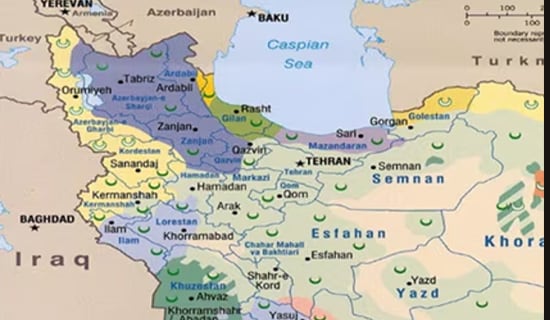In her September 19, 2003 column in the London-based Arabic daily Al-Sharq Al-Awsat titled , "Should Arafat Go?" columnist Huda Al-Husseini urged Arab countries and the Palestinian people to make it clear to Palestinian Authority Chairman Yasser Arafat that by clinging to power, he is preventing a solution to the Palestinian problem. The following are excerpts from Al-Husseini'sarticle: [1]
Arafat Has Become a Worn-Out Symbol That Has Lost Its Glory
"Yes, [Arafat should go], but not by expulsion, murder, or any other form of intervention by Israel.
"Why must Yasser Arafat leave his place in the Palestinian political arena? Because the Palestinian cause will never advance as long as he controls this arena.
"The solution to this problem relies on international elements, the most prominent of which are the U.S. and Israel. Arafat is not wanted – neither by the U.S. nor, most certainly, by Israel. Moreover, he has lost his legitimacy even in the eyes of the Europeans, and he is criticized in the Arab world too. It is true that Arafat is a symbol. But he has become a worn-out symbol that has lost its glory.
"In modern history, two prominent historic leaders have been symbols in the eyes of their people. The first was Nelson Mandela, who was imprisoned by South Africa's previous, racist regime – but no politician dared then to threaten to expel or kill him. The second leader was Xanana Gusmao, leader of the East Timor rebellion who was captured by the Indonesians. Then too, none of the Indonesian authorities dared to threaten him with expulsion or murder.
"But with Arafat the situation is different, because Israel's policy of threatening him with expulsion or murder has again placed him in the limelight. This policy does not attest to strategic thought; it is a blunder [for Israel], which Arafat has not figured out how to use in favor of the Palestinian cause, or for the good of the Palestinian people – but [only] in his own favor. This is because he thinks that he is the Palestinian cause and the Palestinian cause is him."
Arafat Turned His Back On a Palestinian State With East Jerusalem as Its Capital
"Arafat's expulsion would be a mistake, and his murder would be considered a crime. [But] his blowing kisses or flashing a V-sign is no better. This meaningless sign blocks the light at the end of the tunnel. Arafat has missed many opportunities… the most recent and obvious of which was the plan presented to him by the previous U.S. president, Bill Clinton, in 2000. Instead of accepting an opportunity that would lead to the end of the Israeli occupation, he turned his back on a Palestinian state with east Jerusalem as its capital…"
A Great Leader Knows When and How to Leave The Stage
"Arafat's problem is that he wants to prove that nothing will be realized without him, [while] it is obvious that nothing will be realized with him. He wants to preserve [national] principles, while in reality this concept no longer exists. [In reality,] national principles are represented by international forces and capital. Today no international force supports Arafat, and on the other hand he has lost all his capital – except perhaps for his secret bank accounts.
"There is another problem, for which the Arab countries are to blame. These countries are not openly telling Arafat the truth – which is that his insistence on remaining in the limelight will never bring about the realization of the Palestinians' aspirations.
"What Arafat needs is for the Arab states and the Palestinian people to talk to him frankly. As long as Arafat is the only element in the Palestinian Authority, Israel will continue to take advantage of this weak point – by means of Sharon or anyone else. Those who are enthused by the V-sign Arafat flashes will never notice that the limelight is being shifted from the Palestinian cause, the doors are closing in front of them, the settlements are spreading and expanding, and the fence continues to be built and continues to swallow up land.
"A great leader knows when and how to leave the stage – sometimes via his people, as happened to Winston Churchill, and sometimes via his wisdom, as happened to Nelson Mandela."
[1] Al-Sharq Al-Awsat (London), September 19, 2003.








